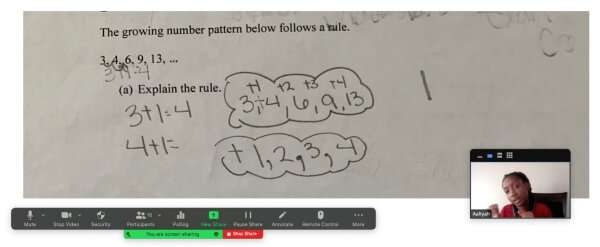Credit: University of Southern California
As remote learning becomes commonplace amid the COVID-19 pandemic, little research has explored teacher bias in these virtual spaces. But a published study led by USC Rossier Associate Professor Yasemin Copur-Gencturk now suggests educators' unconscious judgments in an online environment can deepen inequities.
The report, "Teacher bias in the virtual classroom," is co-authored by Ian Thacker Ph.D. '20 from the University of Texas at San Antonio and Joseph R. Cimpian from New York University. "Our study shows that when there is limited information, existing implicit biases in society have an influence on teachers' judgments," said Copur-Gencturk.
"In sum, when presented with ambiguous evidence of student learning, K-12 teachers in virtual classrooms seem to rely on stereotypes when recommending students for advanced learning or for special education services," the authors wrote.
Copur-Gencturk and her colleagues explored this question by conducting an experiment with more than 1,000 teachers across the United States. It asked teachers to evaluate each student's mathematical ability and recommend that the student be evaluated for gifted or individualized learning programs. While evaluating each student's work, teachers were shown an image of the student's work accompanied by a randomly assigned image of a student.
The study showed that teachers did not grade identical student work differently when shown the image of Black student or one of a White student. However, teachers recommended boys more often than girls to be tested for gifted education, and they recommended Black students for evaluation into special education programs more often than they did for White students.
The researchers also found that the racial profiles of the schools where teachers were working had an impact on their student recommendations for gifted or individualized learning programs. Teachers were asked based on their expertise would they recommend a student for the Gifted and Talented program or a special Individualized Education Program. Black students were recommended for special education programs at a higher rate in schools with higher concentrations of Black students. Gender differences were more pronounced for gifted-education recommendations in schools with lower concentrations of Black students.
"Our findings echo the importance of reducing the ambiguity that clouds teachers' judgment and, in turn, leads them to rely on cultural gender and racial biases. Teachers' ambitious daily schedule for meeting the demands of the teaching profession leaves little to no time for them to get to know their students," said Copur-Gencturk. "Allocating time in the school schedule for teachers to check in with their students and get to know them should be a routine practice, particularly in online learning settings."
"Teacher bias in the virtual classroom" appears in the December 2022 issue of the journal Computers & Education.
More information: Yasemin Copur-Gencturk et al, Teacher bias in the virtual classroom, Computers & Education (2022). DOI: 10.1016/j.compedu.2022.104627
Provided by University of Southern California





















